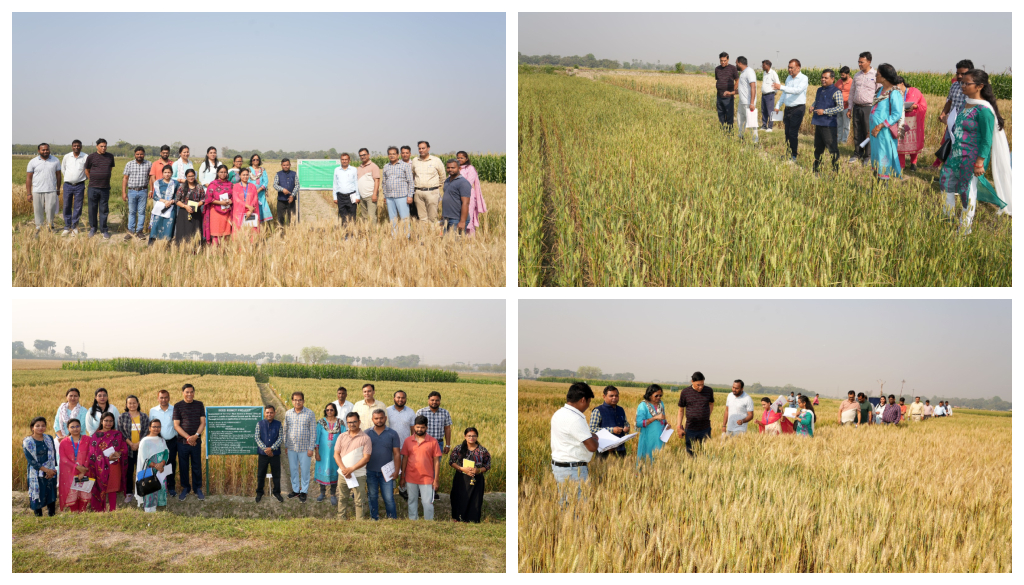BAU Sabour Develops High-Yielding, Climate-Resilient Wheat Varieties for Bihar Farmers

Patna: Scientists at Bihar Agricultural University (BAU), Sabour, have developed new high-yielding, disease-resistant, and climate-friendly wheat varieties to help farmers achieve better production with fewer resources. A research monitoring team led by Dr. Anil Kumar Singh, Director of Research, BAU Sabour, visited the Bihar Agricultural College (BAC) experimental farm to review on-farm trials, nitrogen level responses, late sowing conditions, and seed production programs. The team included Dr. Sailabala Dei, Dr. S.K. Pathak, Dr. P.K. Singh, Dr. Sanjay Kumar, Dr. Deepak Barnwal, and other scientists, who provided recommendations for further improvements.
The newly developed wheat varieties show improved fertilizer response, yielding significantly higher at NPK doses up to 150%. Additionally, they exhibit strong resistance against leaf blight and leaf rust. BAU scientists have incorporated rust-resistant genes (Lr53, Yr35, Lr52, Yr47, Lr76, Yr70, Yr10, Yr15-Yr24, Yr26) into popular varieties such as Sabour Samridhi, Sabour Nirjal, DBW 187, WH 730, and HD 2967. Several new varieties, including BRW 3959 and BRW 3981, offer high yield even under water-scarce conditions, while BRW 3975 is nutrient-rich and heat-tolerant.
For Bihar’s diverse agricultural conditions, specific varieties have been developed. BRW 3923 and BRW 3954 are ideal for late sowing, while BRW 3964 and BRW 3967 are suited for timely sowing. These varieties are in their final testing phase and will soon be available to farmers. BAU Sabour Vice Chancellor Dr. D.R. Singh emphasized that these advancements aim to provide farmers with wheat varieties that perform well even in adverse weather, ensuring better yields at a lower cost.
Dr. Anil Kumar Singh highlighted that climate change is affecting wheat production, and these new varieties will help farmers by requiring less water, tolerating high heat, and resisting diseases. The benefits include increased production with reduced water usage, lower dependency on pesticides, reduced costs, and higher profits. This breakthrough by BAU Sabour will significantly contribute to Bihar’s agriculture, improving farmers’ incomes and strengthening India’s food security.







